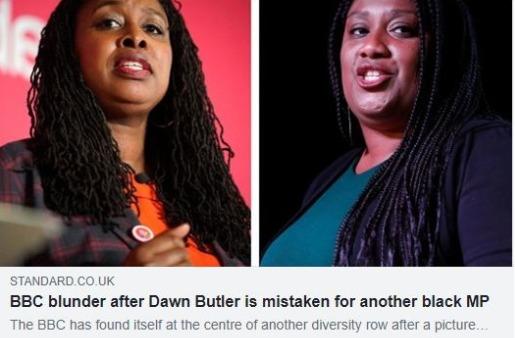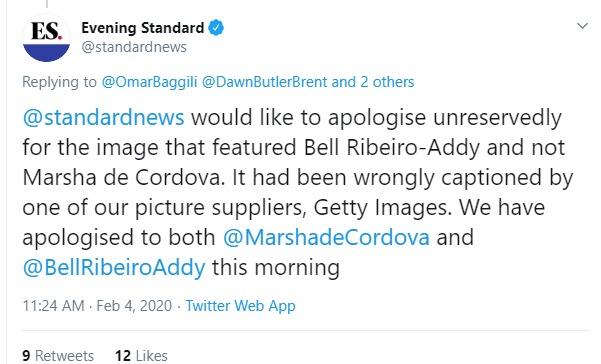Those are the words of Battersea MP Marsha de Cordova who this week was not once, not twice, but three times confused for other black, female MPs.
On Monday during the BBC's live telecast of the House of Commons, de Cordova spoke up to discuss the agriculture bill. But captioned underneath was not her name. Instead it read "Dawn Butler, Labour Co-operative, Brent Central."
But it didn't stop there. The Evening Standard then wrote a story on the mishap, only to use a picture of Bell Ribeiro-Addy - a black MP for Streatham - instead of de Cordova.
Speaking to the Wandsworth Times the Battersea MP said it felt like she "was being deliberately trolled".

She added: "In the range of micro and macro aggressions against people of colour in the public eye, this might seem to some as reasonably harmless but as Gary Younge said recently, ‘the message is clear. It really doesn’t matter how prominent, accomplished, integrated, qualified or celebrated non-white people become to a significant number of others, including their peers. They will always just be another black person: interchangeable.’
"What’s worse is that when the Evening Standard reported on the BBC’s mix up of Dawn and I, they used a picture of Bell Ribeiro-Addy, the great new black Streatham MP, instead of me. "It feels like we are being deliberately trolled."
The Standard took to Twitter to "apologise unreservedly" for the image it used. But in that tweet it also placed part of the blame on Getty Images (who have also since apologised) for incorrectly captioning the picture of Bell Ribeiro-Addy.

A statement provided to the Wandsworth Times from Getty read: "As soon as we were made aware of the error by the Evening Standard, we corrected the caption information on our website and in a notice sent to customers.
"Getty Images holds itself to a high standard of editorial integrity and has robust measures in place to ensure our content ingestion process reflects these standards. Although these errors are relatively rare, we, like all news agencies, regret when these measures fail to capture inaccuracies.
De Cordova said newsrooms and TV studios are still stubbornly lacking in diversity and that this sort of mistake is "just the visible symptom of that homogeneity."
"This is even more than issue of diversity though, I’m certain a black picture editor working on at the BBC would have no difficulty in telling two white female politicians apart so the constant mistake suggest a basic lack of concern," she added.
"We have more women of colour in Parliament than ever before and this is something to celebrate. This is sadly undermined though if media can’t be bothered to tell us apart.”
The BBC did not respond to a request for comment.
Photo: A screenshot of the BBC's coverage from the House of Commons on Monday












